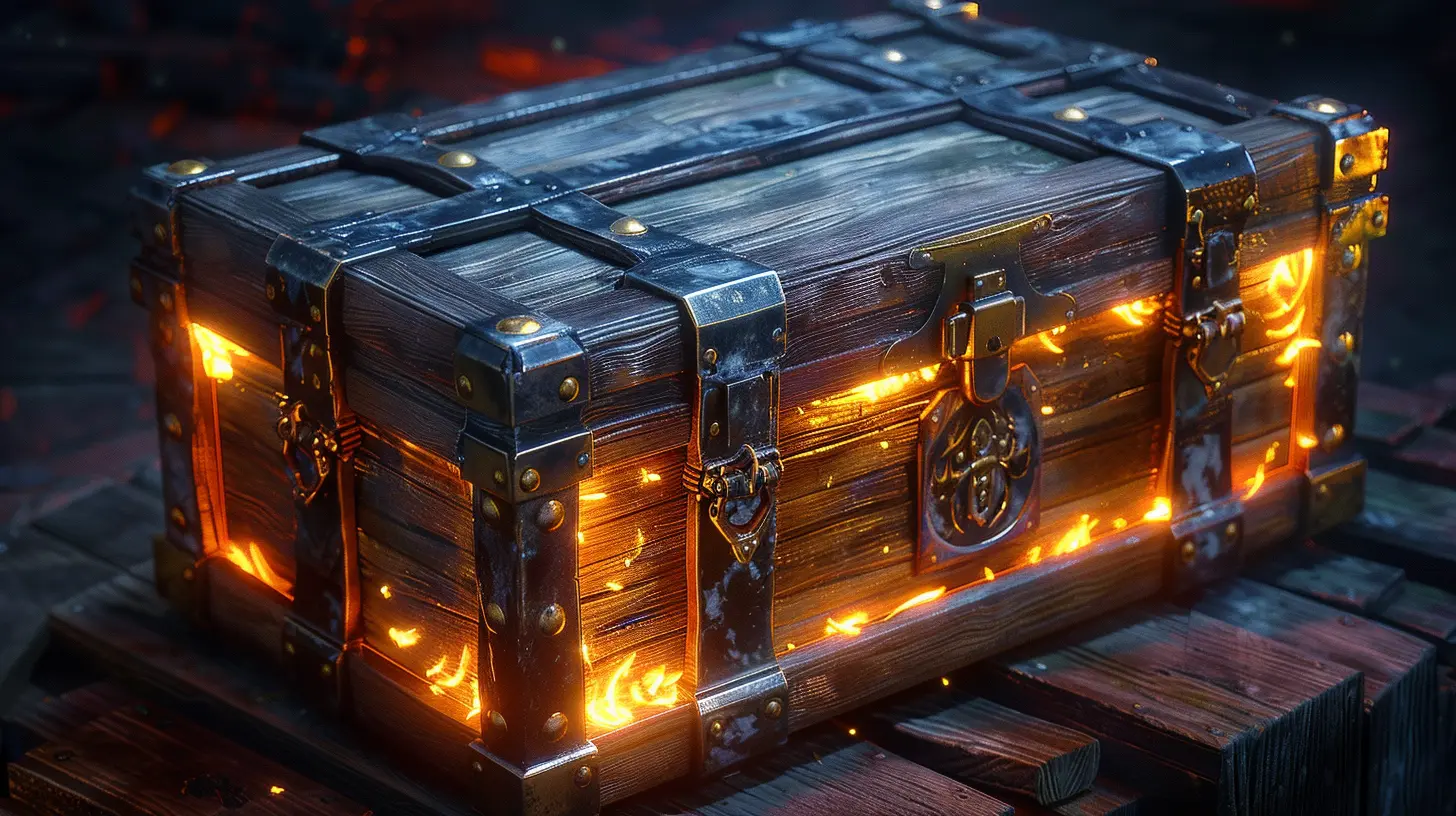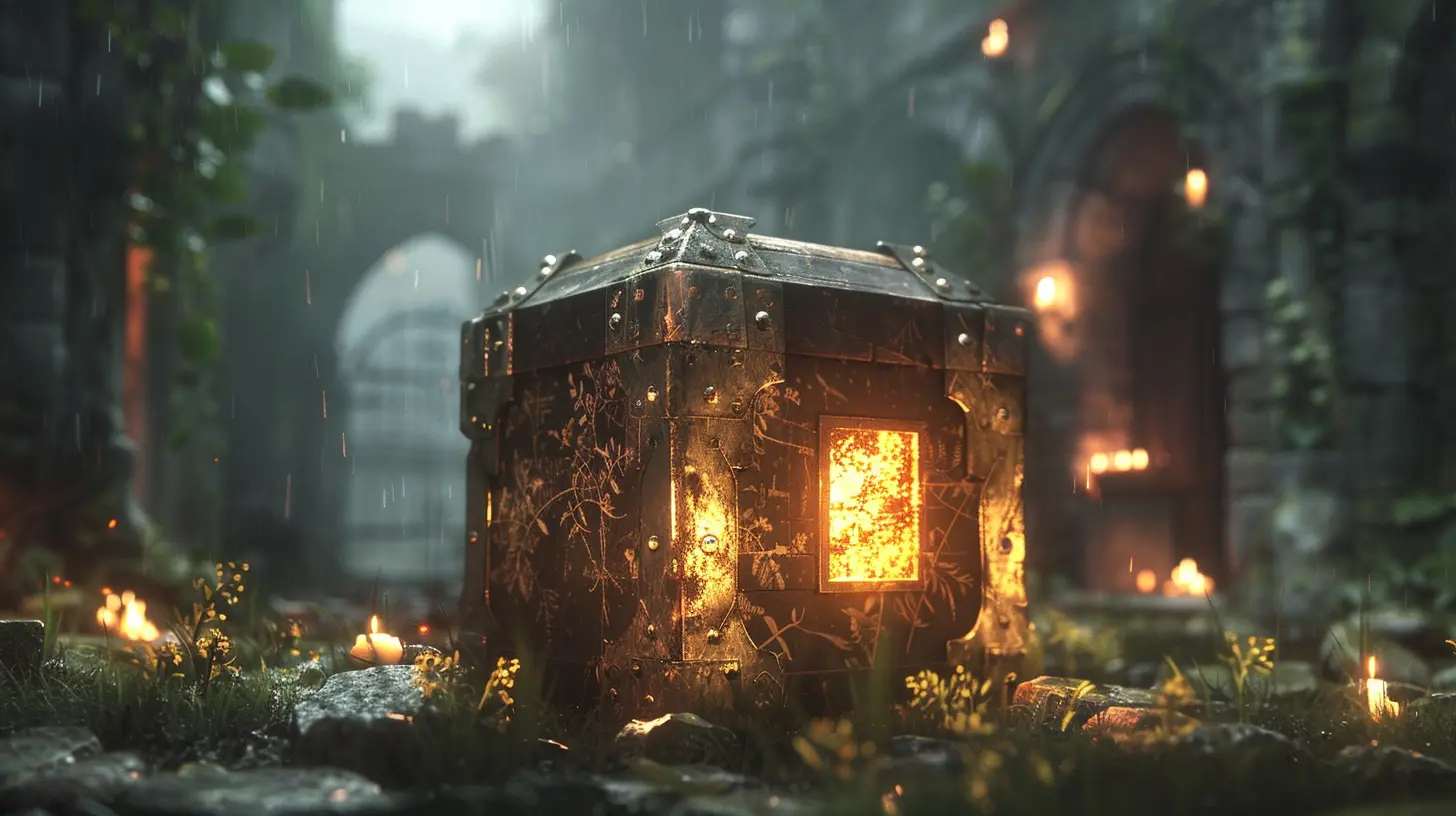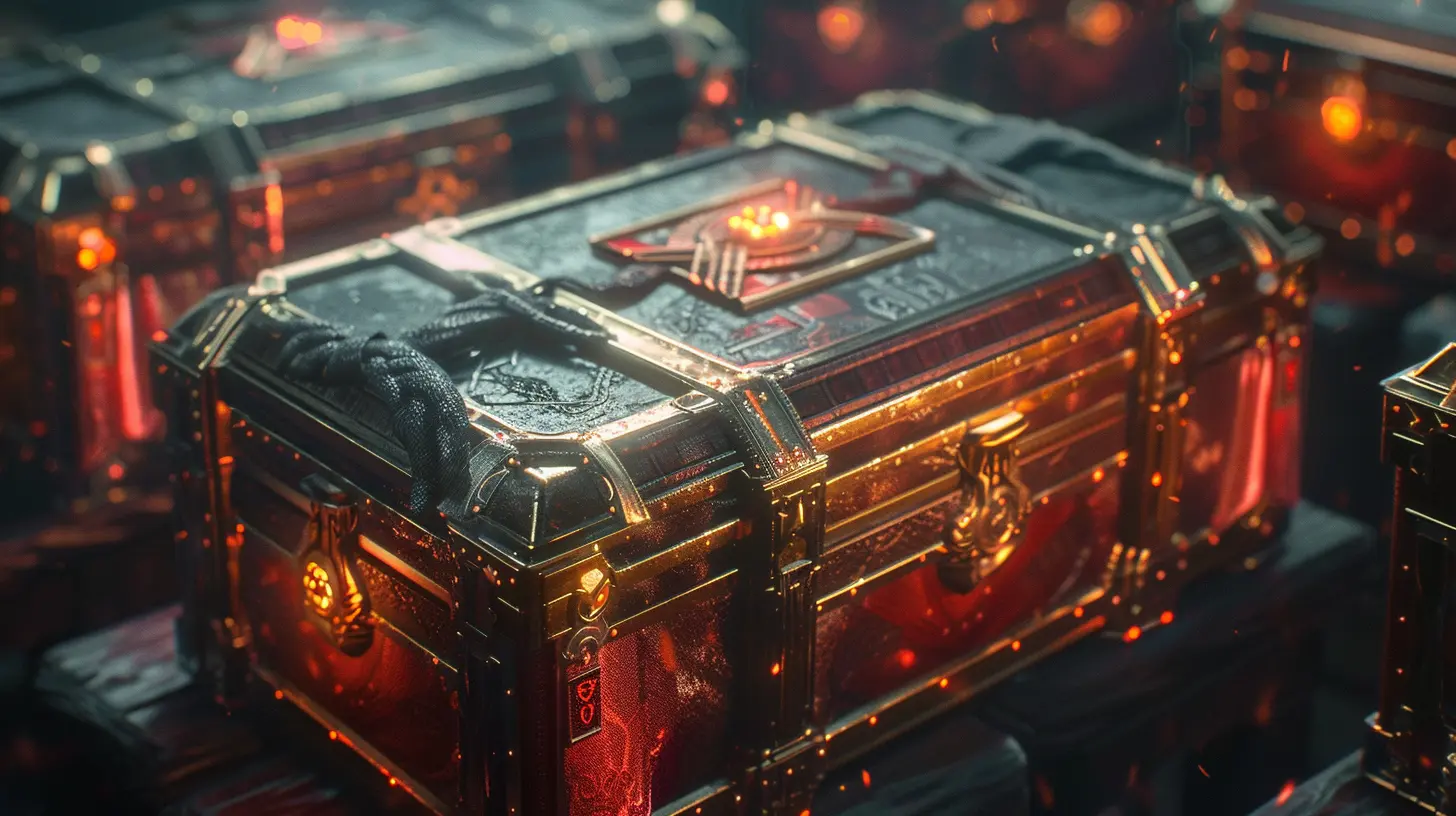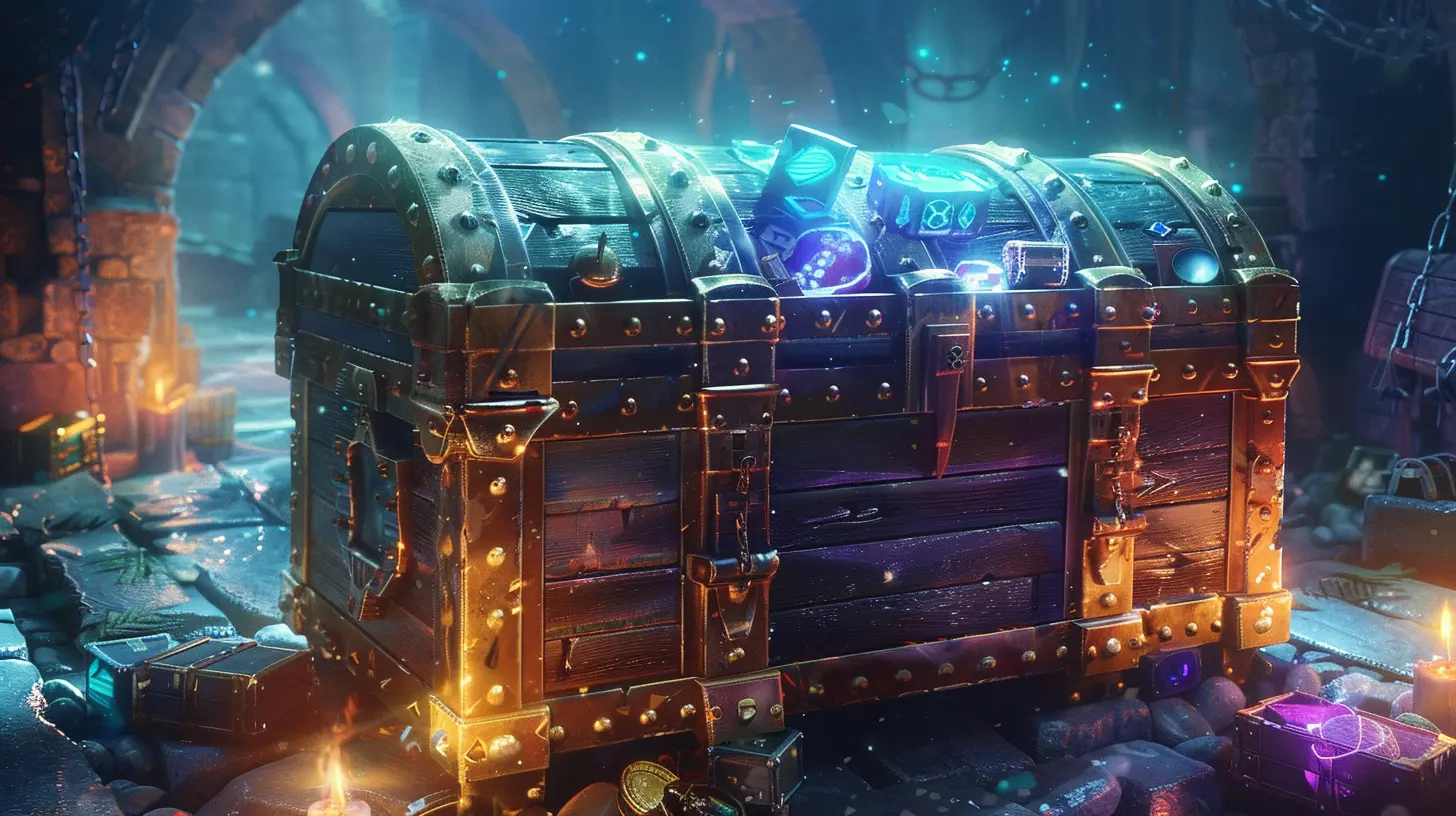The Best Alternatives to Loot Boxes in Modern Gaming
27 September 2025
Loot boxes. Ugh, even just saying that phrase feels like nails on a chalkboard for most gamers. They’ve been a thorn in the side of the gaming world for years. You know the deal — spend some of your hard-earned cash on the promise of shiny, randomized in-game goodies, only to end up with the digital equivalent of a participation trophy. But, thankfully, we’re starting to see developers move away from this headache-inducing mechanic.
If you’re as tired of loot boxes as I am (and honestly, who isn’t?), the good news is there’s hope on the horizon! In this bold, no-BS guide, we’re diving into the best alternatives to loot boxes in modern gaming. By the time you finish reading, you’ll be itching to see these systems take center stage instead of the dreaded loot crates of doom. 
Why Loot Boxes Suck (Let’s Be Real)
Before we dive into the shiny alternatives, let’s take a moment to call out loot boxes for what they are: legalized gambling disguised with pixels and promises. They prey on FOMO (fear of missing out), drain wallets faster than a Vegas slot machine, and often create huge imbalances in multiplayer games.Did I mention the emotional rollercoaster? Nothing crushes your gaming soul quite like spending $10 on a loot box and getting… a pair of digital socks. Meanwhile, the player next to you strikes gold on their first try. Life’s rough, right?
But enough about the bad stuff. Let’s get into the juicy question: What can replace them? 
1. Battle Pass Systems: Because Progress Should Feel like Progress
If loot boxes are the evil villain of gaming monetization, battle passes are the charming anti-hero. They’ve been trending hard in games like Fortnite, Apex Legends, and Call of Duty: Warzone. And honestly? They're kind of genius.Here’s the deal:
- You know exactly what you're getting. Battle passes show you every cosmetic, skin, or emote up for grabs, and you unlock them by playing the game. No dumb luck required.
- They reward effort, not just money. Sure, most battle passes cost a small fee to access, but the grind to unlock rewards actually feels… satisfying. Like you’re earning it.
It’s like climbing a ladder, where every step up gets you something cool. Compare that to the loot box roulette wheel, and it’s a no-brainer. Plus, if you finish the pass, some games even give you enough in-game currency to pay for the next season’s battle pass. Who doesn’t love a freebie? 
2. Direct Purchases: Skip the Mystery, Show Me the Goods
Imagine walking into a store and asking for a soda, only to be handed a mystery box. It might have a soda, or it could have a carrot. That’s loot boxes in a nutshell.Now, direct purchases? Total opposite. Developers like Riot Games (League of Legends, Valorant) and Epic Games (Fortnite) have nailed this. If you want a specific skin, weapon, or emote, you can just… buy it. Shocking concept, right?
No RNG (random number generator), no heartbreak, no drama. You pay, you get what you want, and everyone’s happy. It’s like online shopping but for gaming bling. 
3. Earn It In-Game: Hard Work Pays Off
Back in the day (cue nostalgic gamer music), unlocking cool stuff meant, you know, actually playing the game. Long-forgotten concept, I know. But modern titles like Hades and Overwatch 2 are proving that gamers still love the satisfaction of earning rewards purely through skill or dedication.Here are some perks of this system:
- It keeps players engaged. Grinding for that mythical sword or legendary skin gives you a reason to keep logging in.
- It’s fair to everyone. You’re not locked out of content just because your wallet’s empty. Shout-out to all my broke gamers out there!
- It feels rewarding AF. There’s nothing quite like finally unlocking that rare item after hours of effort. It’s like finding buried treasure.
4. Seasonal Events: Spice Things Up
Who doesn’t love a good seasonal event? It’s like limited-time content sprinkled on top of your favorite game. Developers can throw in exclusive challenges, themed cosmetics, or unique gameplay twists. Think of it as the gaming world’s version of holiday sales.Games like Destiny 2 and Animal Crossing are pros at this. Got a Halloween update full of spooky armor or Christmas-themed skins? Gamers will eat that up like candy — without feeling like they’re being forced to gamble for it.
Seasonal events also tap into that sweet, sweet nostalgia. Remember the first time you saw a snow-covered map or a pumpkin-adorned town square in your favorite game? Exactly. It’s magical.
5. Subscription Services: All-You-Can-Play Buffets
Raise your hand if you’re already paying for a Netflix subscription. (Yeah, I see you.) Now imagine that same concept applied to gaming. That’s exactly what platforms like Xbox Game Pass and EA Play are doing.Here’s why subscriptions are awesome:
- For a fixed monthly price, you get access to a massive library of games. No RNG, no microtransactions, no strings attached.
- Some services even include in-game perks or cosmetics. It’s like getting bonus fries with your meal — unexpected but oh-so-satisfying.
- They’re budget-friendly. Instead of spending $60 on one game (or $20 on useless loot boxes), you get access to hundreds of titles for a fraction of the cost.
While subscriptions don’t completely replace loot boxes, they show that there are plenty of ways to monetize gaming without being sneaky about it.
6. Community-Driven Markets: Gamers, Take the Wheel
Valve’s Steam Community Market and CS:GO trading system are proof that gamers love to buy, sell, and trade their digital goodies. These systems let players cut out the middleman (a.k.a. greedy developers) and decide the value of items themselves.It’s like gaming capitalism at its finest. Got a rare knife skin? Sell it for real money. Found an extra trading card? Pass it on to someone who’ll appreciate it.
While community-driven markets aren’t perfect (scams happen, obviously), they offer a level of transparency and control that loot boxes could never dream of.
7. Cosmetic-Only Monetization: Let’s Keep It Superficial
One of the biggest problems with loot boxes is that they often include items that directly affect gameplay — which is a fancy way of saying “pay-to-win.” But what if developers stuck to selling purely cosmetic upgrades?Skins, emotes, weapon camos, character animations… all of these are super appealing but don’t affect the actual game mechanics. Games like Fortnite and Valorant have built entire empires on cosmetic monetization. Why? Because it works.
It’s the perfect balance: players get to customize their experience without feeling like they’re being ripped off, and developers still rake in cash. Win-win.
8. Crowdfunding and Early Access: Pitch In, Get Rewarded
Crowdfunding is like the gaming world’s version of passing a hat around. Developers pitch a game idea, and fans who are interested can throw in some cash to help bring it to life. The kicker? Those backers usually get exclusive rewards.Kickstarter games like Hollow Knight and Shovel Knight absolutely crushed it with this model. Meanwhile, early access titles like Phasmophobia let players jump into the game before it’s officially released, often with little goodies as a thank-you.
This system is all about transparency. Gamers know exactly what they’re supporting, and developers avoid shady loot box tactics. It’s trust-building at its finest.
Let’s Wrap This Up...
Look, I get it. Loot boxes were a phase — much like the mullet or neon windbreakers. But it’s time to evolve. Gamers want transparency, fairness, and most importantly, fun. Whether it’s battle passes, direct purchases, or community-driven markets, the alternatives to loot boxes are out there, and they’re thriving.So here’s hoping we see less RNG nonsense and more of the systems that actually respect players’ time and money. Because at the end of the day, gaming should be about enjoying the experience, not fighting with your wallet.
all images in this post were generated using AI tools
Category:
Loot BoxesAuthor:

Jack McKinstry
Discussion
rate this article
1 comments
Elowen Cummings
Great insights! Love the alternatives you suggested!
October 12, 2025 at 4:00 AM

Jack McKinstry
Thank you! I’m glad you found the alternatives valuable!


